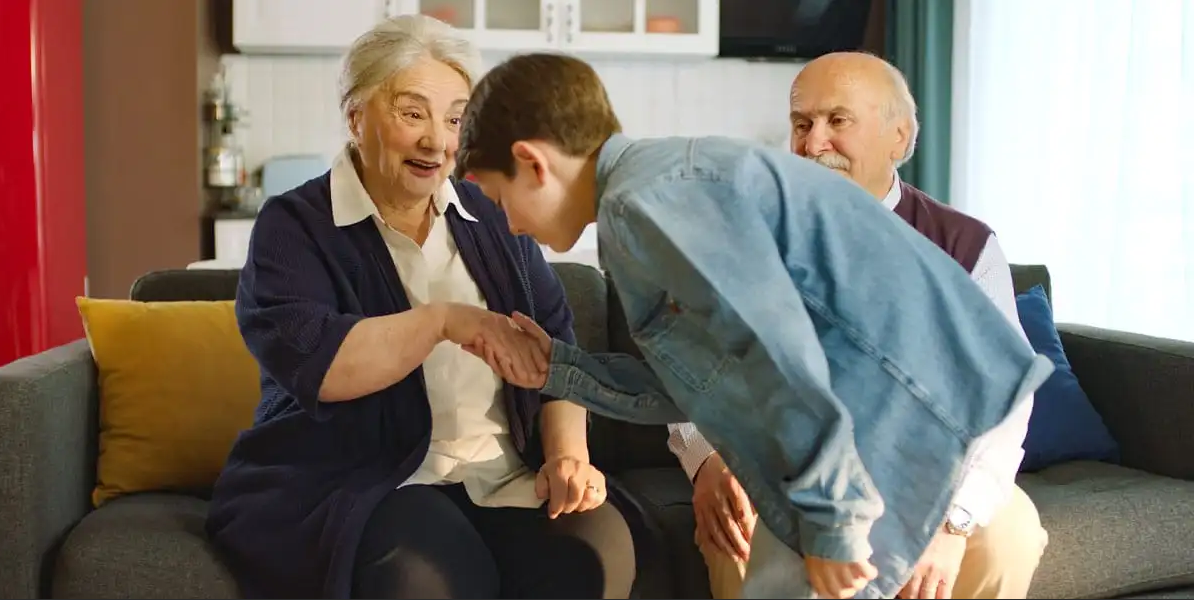Originally posted on: https://standardposting.com/navigating-challenging-behaviors-in-dementia-effective-communication-and-de-escalation-techniques-for-in-home-caregivers/
Caring for someone with dementia is a journey filled with love, patience, and challenges, especially when it comes to managing the challenging behaviors that often accompany the condition. These behaviors can range from aggression and agitation to wandering and resistance to care, presenting unique challenges for caregivers. For those providing in-home care, understanding and navigating these behaviors with compassion and skill is crucial to creating a supportive and safe environment for both the patient and the caregiver. It requires a blend of knowledge, empathy, and practical strategies to address the complex needs of dementia patients effectively.
In-home caregivers play a pivotal role in the lives of those with dementia, offering not just assistance with daily tasks but also emotional support and companionship. However, without the right tools and techniques, managing dementia challenging behaviors at home can become overwhelming. This blog aims to equip caregivers with essential communication and de-escalation techniques tailored for in-home care settings. By focusing on these strategies, caregivers can improve their ability to handle difficult situations, enhancing the quality of in-home care for dementia patients and fostering a more harmonious home environment.
Understanding Dementia Challenging Behaviors
Dementia challenging behaviors manifest as a result of the brain’s impaired ability to process information. It’s crucial for caregivers to recognize that these behaviors are not intentional but are instead symptoms of the underlying condition affecting the patient’s brain. Managing dementia behaviors at home requires patience, understanding, and tailored strategies to meet the unique needs of each individual.
Communication with Dementia Patients
Effective communication is the cornerstone of managing challenging behaviors in dementia. Communication strategies for dementia caregivers must be adapted to the cognitive changes experienced by the patient. Here are some tips for enhancing communication:
- Use simple, clear sentences and avoid open-ended questions to minimize confusion.
- Maintain eye contact and use non-verbal cues to convey your message and show empathy.
- Be patient and give them time to respond, recognizing that it may take longer for them to process information and articulate their thoughts.
De-escalation Techniques for Dementia Caregivers
When faced with aggression or agitation, de-escalation techniques become invaluable tools for in-home caregivers. These non-violent de-escalation techniques for in-home caregivers of dementia patients focus on reducing tension and preventing the escalation of challenging behaviors:
- Remain calm and composed: Your demeanor can have a calming effect on the patient.
- Identify triggers: Understanding what triggers challenging behaviors can help in avoiding or mitigating these situations.
- Use distraction: Redirecting the patient’s attention to a different activity can diffuse a tense situation.
- Create a calm environment: Reducing noise, clutter, and other stressors can help soothe agitation.
Coping with Dementia Outbursts
Outbursts can be particularly challenging for caregivers. Coping with dementia outbursts requires a combination of empathy, understanding, and strategic intervention:
- Acknowledge their feelings: Validating the patient’s emotions can help them feel understood and less defensive.
- Adjust your approach: If your current method is not working, be flexible and try a different strategy.
- Ensure safety: Make sure the environment is safe for both the patient and the caregiver during outbursts.
Calming Techniques for Dementia Patients
Calming techniques are essential for managing agitation and reducing stress for both the patient and the caregiver. These techniques include:
- Music therapy: Playing soothing music can have a calming effect on many dementia patients.
- Aromatherapy: Certain scents, like lavender, can help reduce agitation and promote relaxation.
- Physical activity: Engaging in simple, safe physical activities can help reduce anxiety and improve mood.
Preventing Caregiver Burnout
Providing in-home care for dementia patients is demanding and can lead to caregiver burnout if not managed properly. Preventing caregiver burnout is crucial for the well-being of both the caregiver and the patient. Strategies include:
- Seek support: Joining dementia support groups can provide emotional support and practical advice from others in similar situations.
- Take breaks: Utilizing in-home dementia care support services can provide caregivers with much-needed respite.
- Practice self-care: Caregivers should prioritize their own health and well-being to maintain their ability to provide care.
Finding Support Groups for Dementia Caregivers
Support groups for dementia caregivers experiencing stress are invaluable resources, offering a platform to share experiences, seek advice, and find emotional support. These groups can be found through local health organizations, online platforms, and dementia care networks.
Training for Caregivers
Training for caregivers of patients with dementia exhibiting challenging behaviors is essential. It equips caregivers with the knowledge and skills needed to manage difficult situations effectively and with compassion. Many organizations offer training programs focused on communication strategies for dementia patients with language difficulties and other relevant topics.
Empowering Caregivers: A Path Forward in Dementia Care
Navigating challenging behaviors in dementia requires a deep understanding of the condition, a compassionate approach, and effective strategies for communication and de-escalation. By employing these techniques, in-home caregivers can provide the support and care that dementia patients need while also ensuring their own well-being. Remember, you are not alone in this journey. Utilizing resources such as training programs, support groups, and in-home dementia care support can empower caregivers to manage challenging behaviors with confidence and empathy, ultimately fostering a nurturing environment for both the caregiver and the person with dementia.



